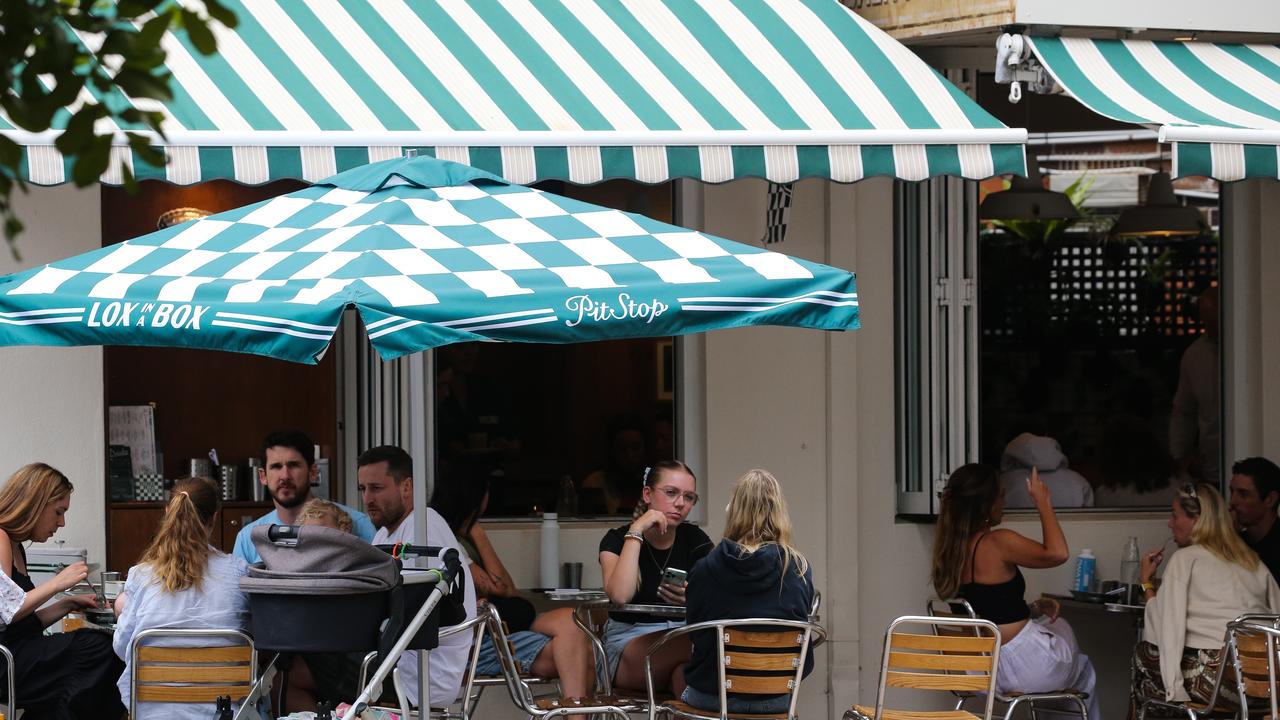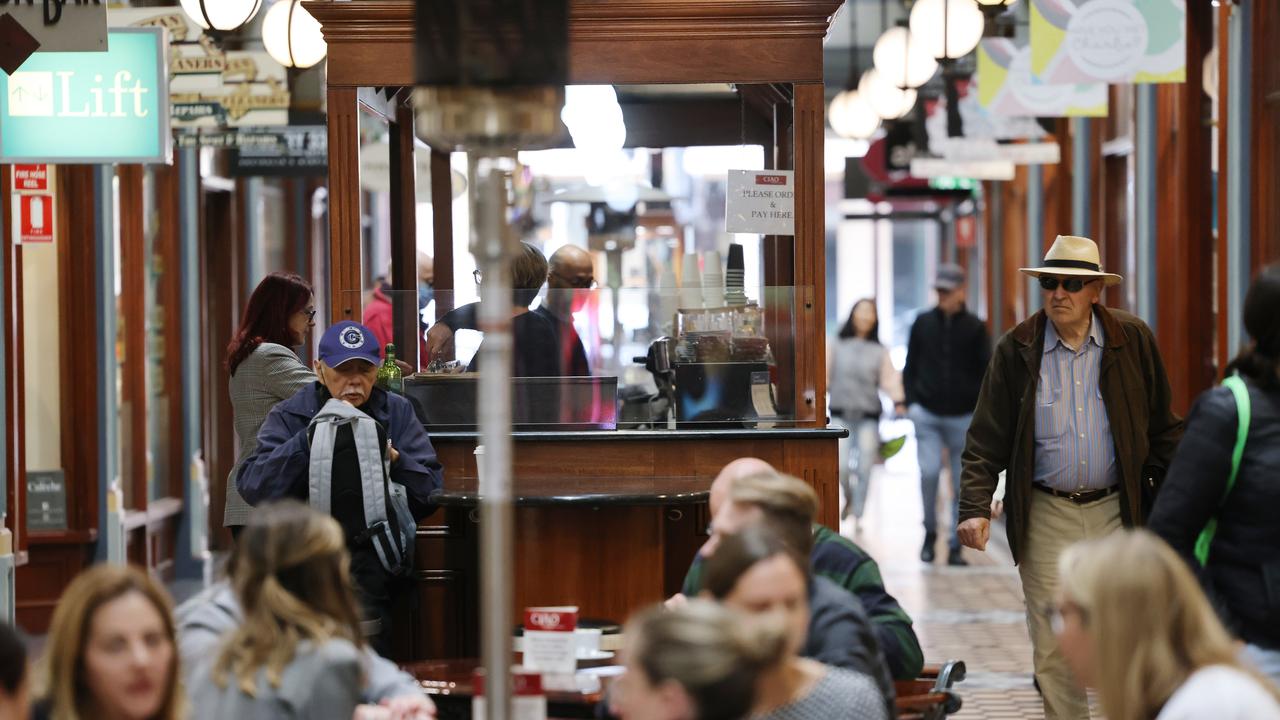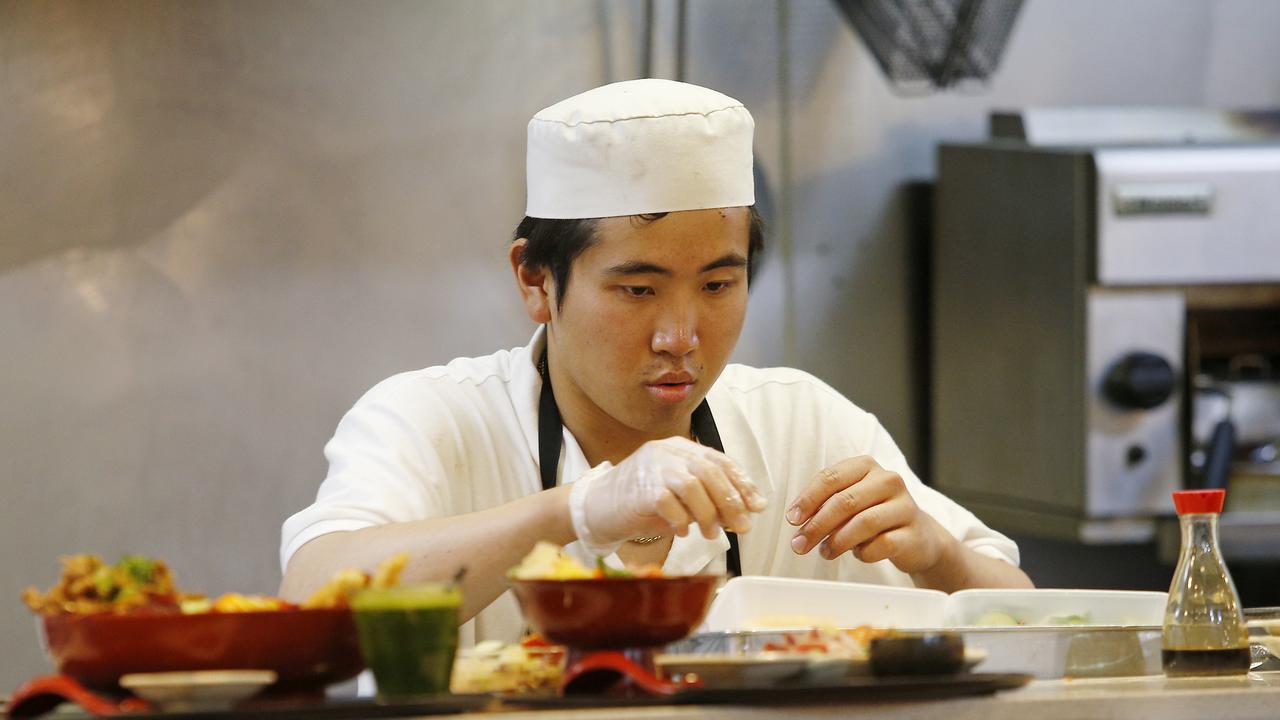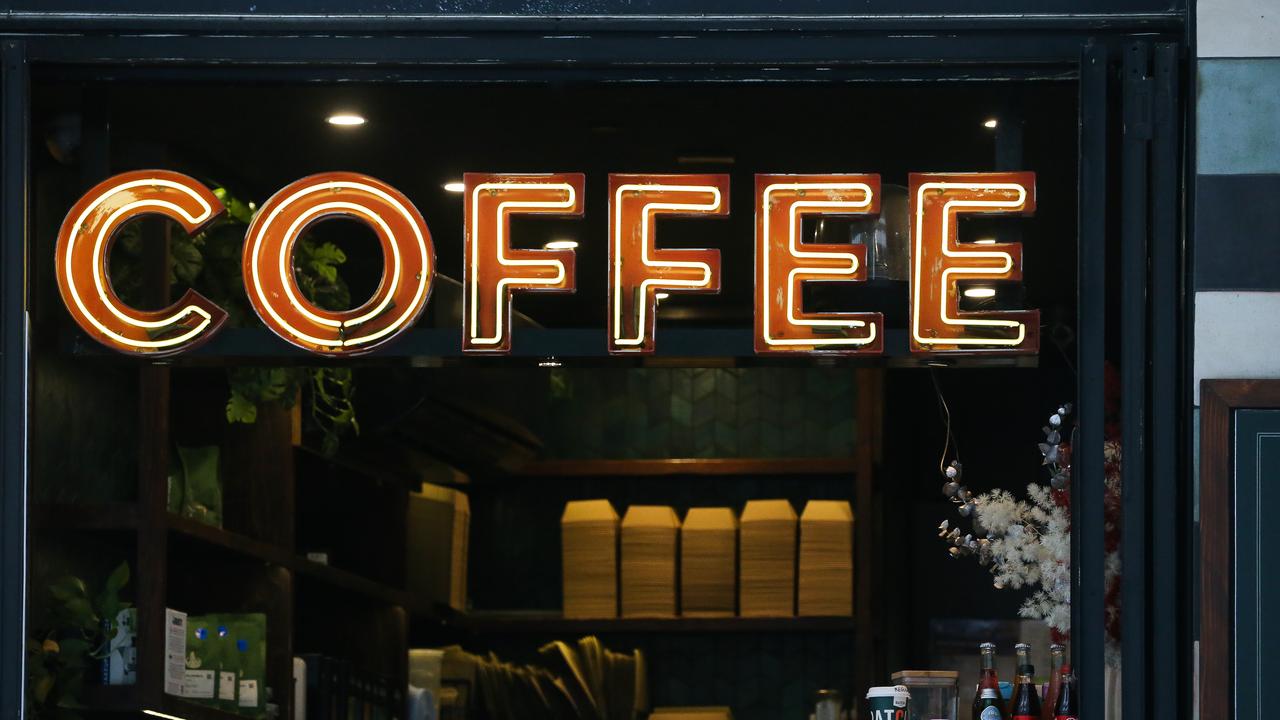‘Tax on dining out’: Surcharge spikes set to hit Aussies back pocket as business owner hits back
Aussies will spend millions of dollars in additional costs as the price of visiting cafes, pubs and restaurants, but business owners say they are still falling behind.
Business Breaking News
Don't miss out on the headlines from Business Breaking News. Followed categories will be added to My News.
Australians will slugged millions in additional surcharge payments over the April long weekends, but a cafe owner has revealed the extra fee isn’t even covering the costs of operating on a public holiday.
Cafe owner Ruby Rule runs three cafes in Brisbane and despite customers calling for surcharges to be removed, she said financially she went backwards in the last few days, even with a 15 per cent holiday fee added to each order.
“This Easter long weekend I’ve worked every day, paid my staff holiday rates and charged customers a 15 per cent surcharge,” Ms Rule said on TikTok.
“At one of my stores, we still didn’t even break even.”
“I’m charging extra because it is a public holiday but I am still making less than on a normal weekday.”
Ms Rule said on Good Friday one of her cafes was incredibly busy, one just broke even and the third had lost money due to the higher costs of operating over the weekend.
She revealed one customer left a comment about surcharges, threatening to throw a cup of coffee at her if they received a surcharge.
“If you’re pressed about paying 60 to 80 cents more on your coffee, then go ahead and throw it at me and make it a double shot,” she said.
“Imagine running a team, covering wages, working the floor yourself and then going home with less money than you started with, because that is what I’m dealing with,” she said.

Research from Money.com.au exclusively for NewsWire revealed Australians were expected to spend an additional $98.4m when going out at cafes, restaurants and takeaway food services over the two long weekends this month.
This is made up of roughly $24.6 million in surcharges per public holiday this April — with key dates including Good Friday, Easter Saturday (in some states), Easter Sunday, Easter Monday, and Anzac Day packed into the month.
Businesses have taken to adding hefty surcharges to get back some of the cost of the increased wage bills.
The costs were based on public surcharge estimates using ABS retail data for cafes, restaurants, and takeaway food services, based on Aussies spending $5.3bn at an average 15 per cent surcharge.
Money.com.au’s finance expert, Sean Callery says public holidays can feel like an extra tax on dining out, which Aussies should factor in prior to going out.


“Public holiday surcharges can lead to bill shock, so it’s up to you to check the fees, which should be clearly displayed on the menu or elsewhere, before you order.
“They usually range from 10 to 15 per cent, but some venues charge as much as 20 per cent. That means a $100 meal could end up costing you an extra $10 to $20, depending on where you go.”
AMP chief economist Shane Oliver said the surcharges and the timing of the public holidays could have an impact on consumer spending, although he still expects a spike in sales over the traditionally busy trading period.
“This may make some people a bit reticent and they might think twice about spending, but still I think most people would still spend,” Dr Oliver said.
“There’s the reality that this year it’s school holidays, people will be on holidays for longer lengths of period which could complicate things.
“You can sort of think I would normally go out to the cafe or the restaurant on Easter Saturday, but might think, oh I’m on holiday I’ll eat in this Easter and go out later when it’s a bit cheaper, say Tuesday, so you could have perverse effects like that.
For Aussies in the ACT, NSW, Northern Territory, Queensland, South Australia and Victoria all four days from Good Friday through to Easter Monday are a public holiday.
Western Australians workers will get public holidays on Good Friday, Easter Sunday and Easter Monday.

Meanwhile Tasmanians will get Good Friday and Easter Monday and mostly for public service workers, Tuesday is also a public holiday.
Regional Australia boost
Separate research by NAB suggests regional towns could be the major winner out of the long weekend.
According to figures released by the big four bank, more than $750m is expected to be spent on regional tourism, including accommodation, hospitality and tourist attractions over the Easter period.
Out of this, $450m is expected to be to spent at regional service stations, while $200m is set to be spent on food and drinks at restaurants, bars and pubs.

NAB retail customer executive Larna Manson said she expects regional towns to be the big winners over the long weekend, especially in the cafes, restaurant and accommodation spaces.
“With cost of living still at the forefront of many people’s minds, road trips across Australia are proving to be a more cost-effective way families can enjoy some time away and make new memories without the price tag of an overseas trip.”
Meanwhile Australians driving through regional towns are likely to add $18m to the economy, an uptick of 11 per cent compared to usual weekend trading. The research also predicts regional chocolate shops will get a $1.6m boost in last minute sales.
Won’t sway the RBA
To struggling homeowners relief, despite the potential lift in spending over the holiday periods, it is unlikely to sway the RBA into holding interest rates.
Dr Oliver said data is seasonally adjusted, meaning the holiday spending has been taken into effect.
“It’ll have no impact on the RBA’s thinking regarding interest rates because it just gets adjusted for even if there is a bit of extra spending [over the holiday period]”.
Dr Oliver said despite retailers likely highlighting a new record sales spend over the long-weekend, this happens every year.
“Things naturally grow, such as population and wages. If your wages grow by say 3 per cent more than a year ago, naturally you might spend 3 per cent more all things being equal,” he said.
“Every year is going to be a record high unless there is a deep recession.”
Originally published as ‘Tax on dining out’: Surcharge spikes set to hit Aussies back pocket as business owner hits back






